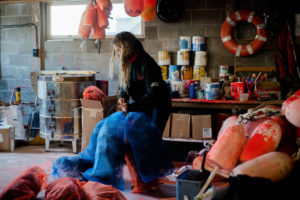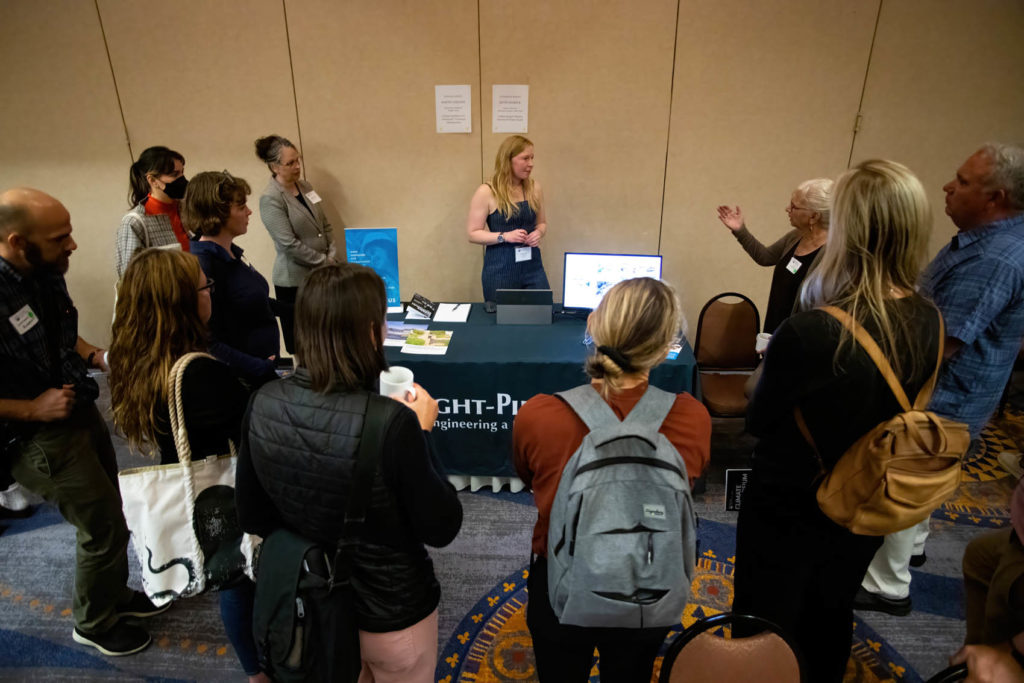Maine’s lobstering communities are under pressure.
In 2021, Maine’s lobster fishery supported nearly 18,000 jobs producing $725 million in revenue. In 2022, however, the value of the fishery dropped to $388 million– a dramatic decline of $358 million that shows the volatility of an industry that is the lifeblood of Maine’s island and coastal communities. Although there are many underlying causes for this single-year decline, there are three key challenges threatening the future of this essential industry: climate change, regulations aimed at preserving the endangered right whale, and increasing costs of doing business.
Watch the videos below to learn more about the pressures facing lobstering communities, the crucial role these communities play in Maine, and how Island Institute is working to ensure Maine’s island and coastal communities continue to thrive.
The Future of Lobster Part 1:
Science & Right Whales
Hear from Island Institute’s Senior Ocean Scientist, Susie Arnold, Ph.D. as she discusses the opportunities for better science as Maine’s lobster industry faces upcoming regulations due to the declining population of the endangered North Atlantic right whale.
The Future of Lobster Part 2:
What Lobster Means to Maine
Hear from Island Institute’s Director of the Center for the Marine Economy, Sam Belknap as he explains the significance of the lobster fishery to Maine’s economy and culture, as well as the vulnerabilities of lobster communities and why they are a priority for Island Institute.
Island Institute is meeting these challenges head-on.
In response to shifting regulations and in preparation for more drastic changes in the lobster industry, Island Institute is collaborating with scientific research partners, policymakers, economic development organizations, community leaders, and lobster industry experts to address the challenge.
Learn more below about the key elements of Island Institute’s near-term response.
- DIVERSIFYING CAREER PATHS
Changes in the industry suggest the need for new skills and the expansion of new opportunities along the coast. Through our Compass Workforce Grant program, we help those in fishing communities learn new skills for a changing world.

- TRANSLATING CLIMATE SCIENCE FOR COMMUNITIES
Island Institute sits at the nexus of science, policy, and communities. As such, our efforts to explain ocean and climate science to communities and policymakers is essential in helping them prepare for change. One example is a column we published in the Working Waterfront newspaper explaining how warming waters in the Gulf of Maine have disrupted the food chain that serves North Atlantic right whales. - ONGOING DIRECT BUSINESS SUPPORT EFFORTS IN VULNERABLE COMMUNITIES
We are supporting small businesses in coastal communities that—while not directly in the lobster fishery— will face challenges as the lobster industry evolves.
- ACCESS TO CAPITAL AND TECHNICAL ASSISTANCE
By providing grants for the purchasing of equipment or facility improvements, as well as offering training and technical assistance to help businesses grow, we help create greater business and community resiliency. - ADVOCATING FOR POLICIES THAT SUPPORT A SUSTAINABLE WORKING WATERFRONT
Island Institute is advocating for policies at the local and state level that support the long-term sustainability of Maine’s working waterfront. One such an initiative is supporting LD 574— Maine state legislation that would allow land trusts to hold working waterfront covenants and would provide needed agility and funding to protect the last 20 miles of working waterfront in Maine. - ENGAGING AND EDUCATING THE PUBLIC
Island Institute engages and educates the public by organizing events, educational programs, and producing a variety of publications that seek to increase awareness around critical issues facing Maine’s island and coastal communities.

Let's stand behind Maine's lobstering communities
Join us in our work supporting Maine’s lobster fishery and the island and coastal communities who depend on it.

